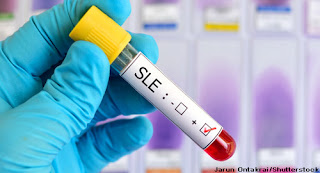A recent study on disability in childhood-onset systemic lupus erythematosus (cSLE) reports that 41% of pediatric patients are affected by at least “mild disability.” A finding that Mary Beth Son, MD, director of the rheumatology program at Boston Children’s Hospital, says underscores the need for more research.
“We take care of these kids day after day, year after year,” says Dr. Son, one of the study’s authors. “I think looking at what [affects] them on a day-to-day basis is really important and helpful … finding out how many kids actually feel they are being [affected] on a day-to-day basis, and what factors into [how they feel]. And all of that [is] in hopes of identifying targets we can hit as clinicians to improve their quality of life.”
Published this spring in Lupus, the study is based on 2010–2014 data from the Childhood Arthritis and Rheumatology Research Alliance (CARRA). During the study, the Childhood Health Assessment Questionnaire (CHAQ) was used to assess disability on a scale of 0–3, with 3 being the worst. The multivariate, logistic regression analytics identified an association of low annual income, arthritis and higher pain scores with disability at baseline.
Translating the Results to Practice“One of the more interesting things we found is that higher pain scores do correlate with [increased] disability. I think that would be expected in an adult population, but it’s certainly borne out in the pediatric population, as well,” Dr. Son says.
It’s important for rheumatologists to ask kids about their joint pain “and how much of their function they think [has] decreased due to joint pain,” she adds. “We do have medications that treat inflammatory arthritis, so focusing on that [need] and addressing it the best we can [may] also help decrease disability.”
Dr. Son encourages rheumatologists to ask “the right questions” to elicit information from pediatric patients about such issues as joint pain. “Some kids willingly offer [information], and other kids [may] have learned to live with [the pain],” she says. “As pediatricians, we focus on function. So what’s impacting the child’s day-to-day function? Are there sports they want to play that they’re unable to? Are there other activities they’d like to participate in that they’re unable to?”
Another point to remember is that for a pediatric patient, participating in sports and school is as important as an adult rheumatology patient’s ability to earn a living, Dr. Son says.
READ FULL ARTICLE
No comments:
Post a Comment